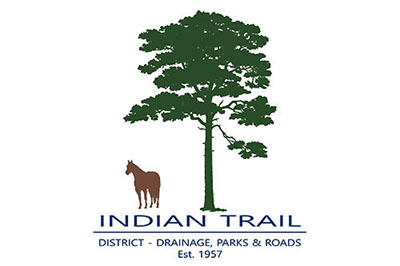Most residents in the Indian Trail Improvement District are unlikely to see an assessment increase for fiscal year 2025, which begins Oct. 1.
During a recent workshop, district staff told the ITID Board of Supervisors that it would be possible to stand pat at an average of $946 per acre after several years of increases.
“Everyone is in a lot of pain with inflation,” ITID President Elizabeth Accomando said this week. “I live here, too, and I don’t want to see anyone’s taxes go up… The consensus [among the board] is to leave it steady.”
A final decision on the budget is expected at the board’s meeting on Wednesday, May 15.
ITID’s operating budget for the upcoming year is planned at $19,819,438. The 2024 operating budget is $19,505,334.
The district’s overall proposed budget is $25,732,256, which includes reserves and projects already funded, such as R3 road construction plan and the Unit 20/Santa Rosa Groves improvement project.
ITID assessments have risen steadily over the last four years, going up from an average of $560.99 in fiscal year 2021. Hanson said the increases were necessary because infrastructure repairs and upgrades had gone undone for a number of years.
“All of this infrastructure work that we’ve been doing the last few years, should have started 10 years ago,” he said. “In this current and the last fiscal year, we’re getting operations to a level where it needs to be.”
ITID oversees roads, drainage and parks for some 45,000 residents on 27,000 acres in the Acreage/Loxahatchee area. The district gets no federal, state or county money for its roads.
Accomando said the main reason that ITID can hold the line on assessments next year is because the major district projects are already funded and in progress.
“We’re not starting any [significant] new projects,” she said.
Two areas where the district is budgeting much lower this year are litigation costs ($100,000 in 2025 vs. $500,000 in 2024) and capital expenditures ($2,578,064 vs. last year’s $3,021,154), for a total saving of some $843,000.
Other areas of major savings include short-term equipment rental down $276,750 to $199,500, and workman’s comp down $118,743 to $179,256.
One area of projected increase is in personnel, which includes merit and cost-of-living raises, totaling $217,006 and representing a three-percent increase. Personnel costs account for $8,272,902 in the proposed budget.
“We’re not going to slight our staff,” Accomando said. “We’re going to take care of the ones who take care of us.”
One area of savings that has accrued over the last several years has been in the area of road maintenance costs as the district has added millings to an increasing number of roads, according to district staff at an April 17 presentation.
It costs $113,000 to put down a mile of millings, while the cost is $151,000 for rock construction, staff reported, adding that overall, ITID has saved $2 million since 2021 thanks to its millings program. Nearly 70 miles of ITID roads now have millings.
Among the goals listed in the presentation for 2025 were adding millings to another 20 miles of roads and paving 89th Place North, east of Hall Blvd., at an in-house cost of $400,000, as opposed to $900,000 if contracted out.
Within its 95 square miles, ITID maintains 96 miles of paved roads, 272 miles of dirt roads, 63 miles of sidewalks, 164 miles of canals, 380 major culverts equaling about 8.5 miles, four pump stations, 18 control structures and 983 miles of swale, which are an integral part of the district’s drainage system.
ITID does approximately 5,000 miles of road grading each year, staff noted. To carry out road and canal maintenance and other tasks, $1,245,000 has been included in the proposed budget for equipment purchases.








